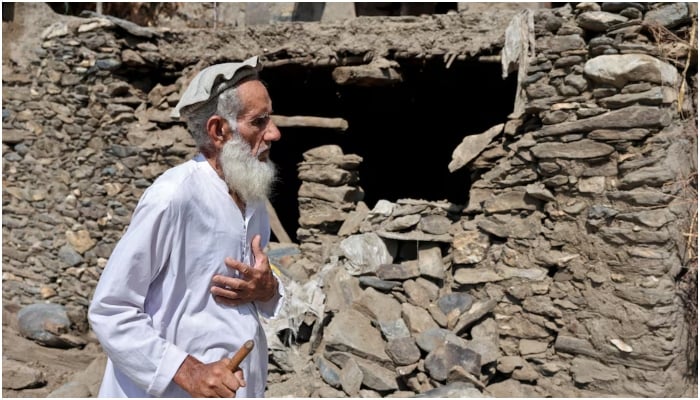Politics
Afghan quake survivors refuse to return home, fearing deadly landslides

- Survivors camp outdoors fearing aftershocks, lack tents.
- More than 2,200 dead in calamity, helicopters deliver aid.
- Afghan children face trauma, disease risks after quake.
Haunted by the fear that aftershocks could send boulders crashing from the mountains, Afghan earthquake survivors are refusing to return to their devastated villages and are camping in fields and along riverbanks, despite lacking tents for shelter.
“We have no shelter, not even a tent,” said 67-year-old farmer Adam Khan, standing outside his ruined home in Masud village, in Afghanistan’s eastern Kunar province, which was flattened by the recent quakes. “It rained last night, we had no place to take cover. Our biggest fear is the big rocks that could come down at any moment.”
Two earthquakes since August 31 have killed more than 2,200 people and injured over 3,600 across the region, flattening thousands of mud-and-stone houses. Aftershocks triggered fresh landslides, leaving families trapped between unstable mountains and swollen rivers.
Aid agencies have flown in food and supplies by helicopter, but survivors say help has been slow and patchy. Many villages remain cut off, several hours from the nearest road. Families now cluster in makeshift camps, with little more than their salvaged belongings.
“The tents they gave us cannot even accommodate our children,” said farmer Shams-ur-Rahman, who lost six relatives and fled with his family of nine. “On the way down from the mountain, I had no shoes for my son, so I shared mine with him in turns as we walked down.”
For many, displacement appears permanent. “Even if there is no earthquake, a simple rainfall could bring rocks crashing down on us,” said Gul Ahmad, 51, standing beside flapping pop-up tents. “We will not go back. The government must provide us a place.”
Humanitarian groups warn that without adequate shelter, sanitation and food, the trauma could spread disease and deepen poverty in one of the world’s most quake-prone countries. Children are among the worst affected — 12-year-old Sadiq, who survived 11 hours trapped under rubble, said quietly, “I thought I would die. It felt like doomsday.”
Meanwhile, at the United Nations, Shannon O’Hara, Head of Strategy and Coordination for OCHA Afghanistan, will brief virtually on the humanitarian response to the earthquakes.